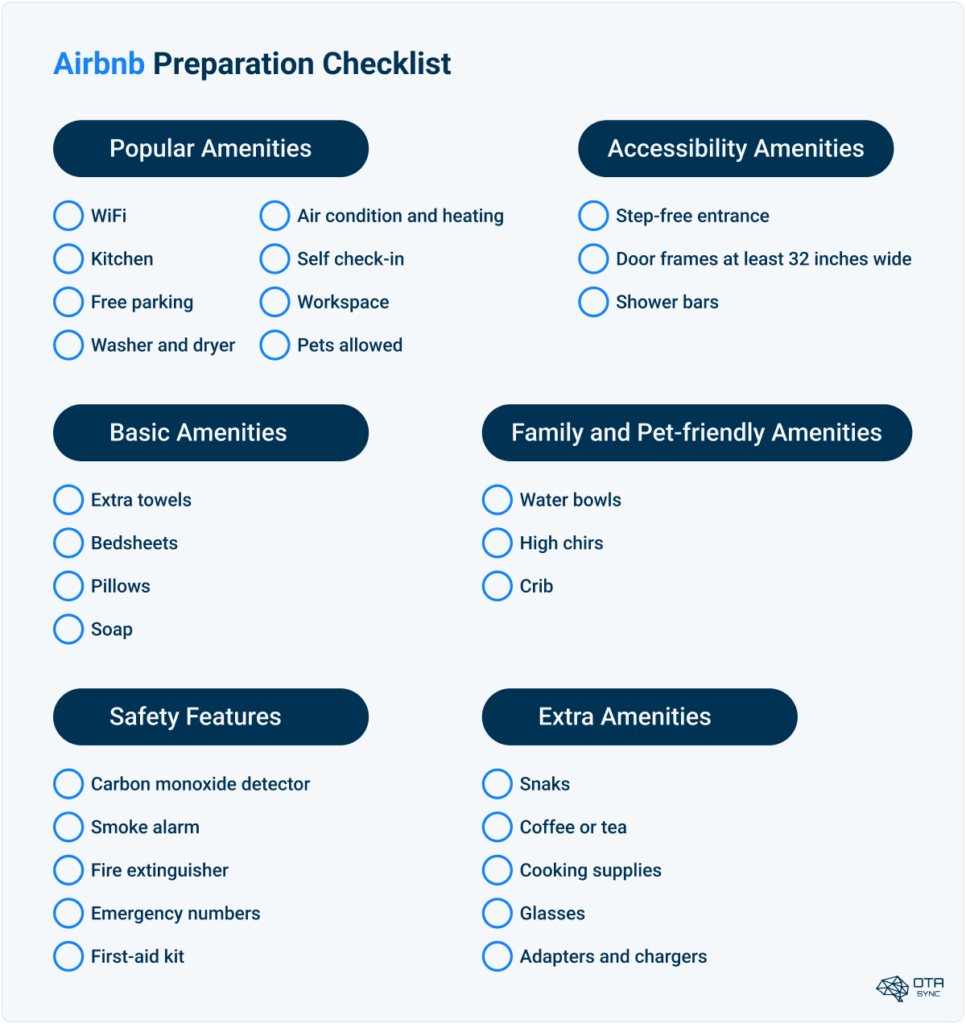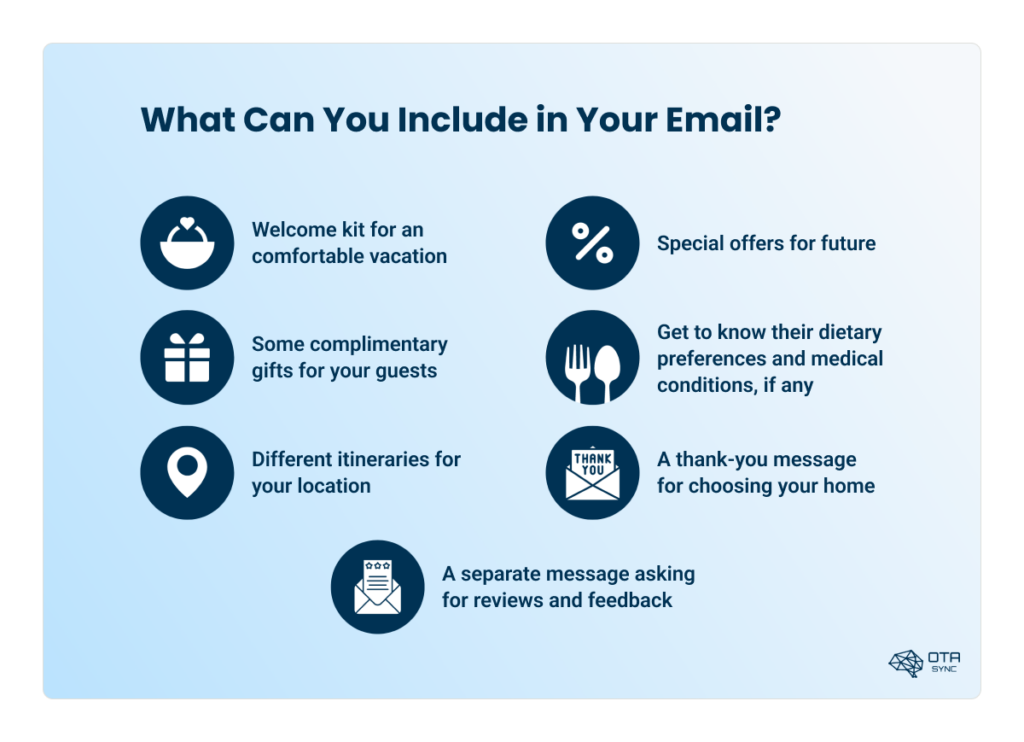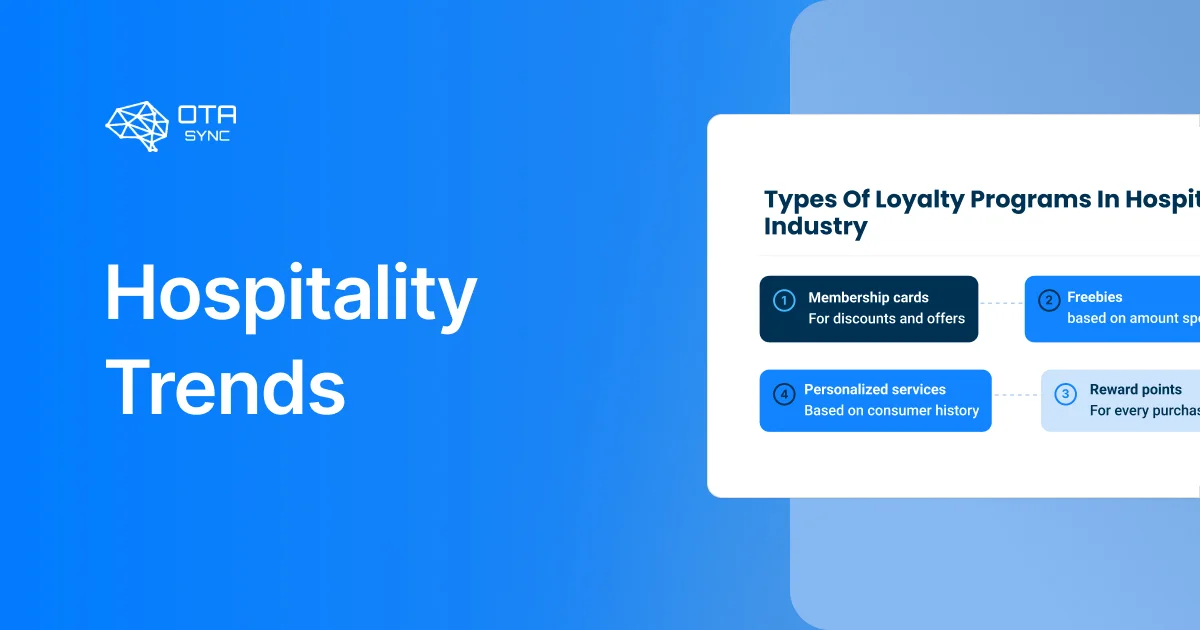If you want to advertise your accommodation on the Airbnb platform, you must first ensure that you have everything you need to be a successful host.
This site is specific because it focuses on giving guests a local experience of the place, making them feel at home, and providing everything they need for a relaxed stay.
For that reason, it is important to define your role as a host: will you be there for your guests or just hand over the keys to them?
In this article, we’ll walk you through the steps and show you how to start on Airbnb, from defining your business to optimizing guest experience, ensuring you maximize your potential in the rental market.
Let’s begin!
Why should you start an Airbnb business?
Airbnb provides short-term rentals for travelers looking for a place to stay.
It makes the rental process easy for both hosts and guests.
Whether you’re renting out a spare room in your home or a beach house across town, being an Airbnb host is a great way to make money.
Here are some benefits to start your own Airbnb business and what renting here can get you:
- Earning a recurring income
- Saving money on taxes
- Diversifying your investments
- Gaining experience in running a rental business
- Having more free time
How to Start an Airbnb Business in 9 Steps
1. Research and Analyze Your Location
You can host your listing wherever you want, but not every property is a good fit for Airbnb.
A strong Airbnb usually has some of these features:
- Close to popular tourist spots (e.g., museums, historical sites)
- Limited competition
- Steady demand throughout the year
- Near public transportation (e.g., buses, trains)
You should also consider other factors, such as the strictness of Airbnb rules in your area and the maintenance needed to keep the property in good shape.
For example, paying high upkeep costs doesn’t make sense if your area doesn’t get many visitors.
2. Check the Rules and Regulations
Checking the rules and regulations in your area is a key step when starting your Airbnb rental business.
This is important enough to highlight on its own.
Vacation rental rules and regulations are becoming more common across the country, and ignoring them could cause problems for your business.
What to do to prevent that?
Look into local laws to see if vacation rentals are banned, strictly regulated, limited by a cap, fined, or anything else.
Regulations don’t necessarily mean you can’t move forward, but they might require extra steps.
For example, if you already own a property, you’ll need approval from both your mortgage provider and your homeowners’ association.
There might be other rules to check, too, so before starting, you should make sure everything is fine.
3. Create a Business Plan
Creating a thorough business plan will help you stay organized, set clear goals, and achieve success with your Airbnb business.
Here are the most important steps to do it properly and include them in your business plan:
- Define Your Business Goals – Determine what you want to achieve with your Airbnb, such as generating extra income or creating a full-time business.
- Financial Planning – Calculate startup costs, ongoing expenses, and potential revenue. Create a budget that includes maintenance, cleaning, and marketing costs.
- Legal Considerations – Check local regulations and obtain necessary permits or licenses. Consider forming a legal entity like an LLC to protect your personal assets.
- Marketing Strategy – Develop a plan to promote and get more bookings on Airbnb. Use high-quality photos, engaging descriptions, and highlight key features. Leverage social media and listing sites like Vrbo and Booking.com.
- Operations Plan – Outline daily operations, including check-in/check-out procedures, guest communication, cleaning schedules, and maintenance plans.
- Customer Experience – Plan how to provide exceptional guest experiences. Think about amenities, personalized touches, and how to handle guest inquiries and feedback.
- Risk Management – Identify potential risks and how to mitigate them. This could include property damage, guest issues, or fluctuations in demand.
4. Register a Legal Business Entity
Registering a legal business entity for your Airbnb can protect your personal assets and make your business look more professional.
The most common options are limited liability companies (LLCs) and corporations.
Talking to a lawyer can help you decide which is best for you.
An LLC offers flexibility like a partnership and benefits like a corporation.
Its main advantage is that it protects your personal assets from any problems related to your Airbnb business.
Plus, with pass-through taxation, you might save some money on taxes.
A corporation is a more formal setup that separates your personal and business assets. Incorporating your Airbnb business provides limited liability protection and may offer certain tax benefits.
However, forming and maintaining a corporation can be more complicated and expensive than other business structures.
5. Define Property Management Strategy
There are many ways to be a successful Airbnb host, so you need to decide what strategy works best for you.
Here’s how to clarify it:
Step 1. Figure out when and how often you will host guests.
Step 2. Decide whether you’ll handle everything yourself or hire a property manager or other service provider to help you.
Some tasks you might need to delegate include maintenance, laundry, cleaning, or even responding to guest messages.
If you prefer to be less involved, consider hiring a top property management company.
You can also automate some messaging by scheduling or using Airbnb’s Quick Replies feature.
No matter your management style, you’ll need to create a list of rules for guests.
Some rules may come from a homeowners association, while others may be specific to your property.
Rules might include:
- The number of guests
- Check-in and check-out times
- Smoking policy
- Pet Restrictions
- Eating areas
- Quiet hours
- Extra services
A clear list of house rules will help ensure guests know what is expected in your property.
Pro tip:
To help you manage your properties, OTA Sync might be of help.
This cloud-based property management system can help you manage your daily operations from one place, from single-unit vacation rental to a large hotel with 500+ rooms.
6. Prepare your Airbnb for guests
Once you get approval, you should prepare the property for guests.
Think about what amenities guests want and add them to your unit.
Airbnb found that guests mainly look for:
- WiFi – Upgrade your internet to offer high-speed WiFi.
- Self-check-in option
- A kitchen
- Air conditioning and heating
- A washer and dryer
- Free Parking
- Workspace
- Pets allowed
If still don’t have, try to include these amenities in your listing.
For example, turn a corner of a living room into a workspace with a desk, a comfortable chair, a printer, and other supplies.
Ensure Guests Can Self-check in
Including a self-check-in process means guests can enter the property without meeting the host.
You can do this by installing a keypad or a smart lock for your property.
Another option is to leave a key with the building staff if they are available 24/7.
Provide Basic Amenities and Safety Features
Keep supplies like extra towels, bedsheets, pillows, and soap.
Make sure your listing has safety features such as:
- smoke alarm,
- fire extinguisher,
- emergency numbers, and
- a first-aid kit.
Add Amenities for Family and Pet-friendly Stays
If you plan to host families with children or pets, add amenities to accommodate them.
This might include:
- high chairs,
- water bowls,
- a crib, and
- other items to make their stay easier.
Consider pet-proofing by moving things to higher shelves and ensuring pets can’t knock over trash cans.
7. Create a Unique Guest Experience
Though not required, adding the following items can make your guests’ stay better and boost your listing’s rating:
- Snacks (like chips or granola bars)
- Coffee or tea
- Cooking supplies (pots, pans, bowls, plates — good-quality ones are a nice bonus)
- Glasses (wineglasses, cups)
- Adapters and chargers
To make sure your listing is well-prepared, use this checklist.

You can also send them email to personalize the experience and make it extra pleasing for them:

8. Take High-Quality photos of Your Property
A listing is the next step after becoming acquainted with your rights and obligations as a publisher.
But first, you need to have photos of the apartment in the best possible resolution.
You can use a good camera or, better yet, hire a professional photographer to take pictures of your space.
To get great photos, make sure to:
- Clean the property
- Let in natural light
- Take landscape photos instead of portrait ones
- Highlight unique features, like cool artwork or a nice kitchen
- Take pictures of any accessibility features
9. List Your Property on Airbnb
So, now that you’re ready to list your property and start accepting guests, we’re moving on to our next move: listing your property on Airbnb.
Begin by creating your Airbnb account.
Note: To do this, you will need your ID for verification.
Then, create a listing within your profile section.
Your title should attract your target guests, whether it’s an apartment for remote workers or a family vacation spot.
Note: The title can only be 50 characters, use them wisely. Shorten words like “bedroom” to “BR” and “with” to “w/.”
Here is an example:
In your description, highlight what guests will experience:
- Will it help them be productive and stress-free?
- Will it feel like a home away from home?
- Will it place them in a lively downtown area?
Share the experience you want guests to have, but also don’t forget to mention any possible downsides.
For example, if your property is on a busy street, light sleepers might want to know about the noise.
Note: Make sure to set the availability of your unit. One-night stays can increase bookings but require more time and effort for check-ins and cleanups.
Pro tip: You’ve worked hard to start your Airbnb business and get some visibility.
You can get more visibility by listing your vacation rental on other sites such as Booking.com, Expedia, Hotels.com, etc.
OTA Sync channel manager helps you manage all your listings from one place.
Just connect and synchronize your OTA channels, and you’re ready to go.
Start an Airbnb Business the Proper Way
By now, you should have a good idea of how to start on Airbnb.
If you’re ready to jump in, there’s a lot of work—and rewards—waiting for you.
But before you start, here’s one last tip: don’t stick to just Airbnb!
Since you’re putting in the effort to start your Airbnb rental business, expand your reach by listing your property on other sites like Vrbo and Booking.com.
This will boost your online visibility without adding much extra work.
OTA Sync’s channel manager and property management software lets you manage all your listings, bookings, tasks, finances, and guest communications from one place.
But don’t just take our word for it!
Try the full version of OTA Sync for free with a 14-day trial to see for yourself and start your Airbnb business properly right from the beginning!
![How To Start On Airbnb And What You Need To Know [Rental Guide]](https://otasync.me/blog/wp-content/uploads/2020/09/Cover.png)


